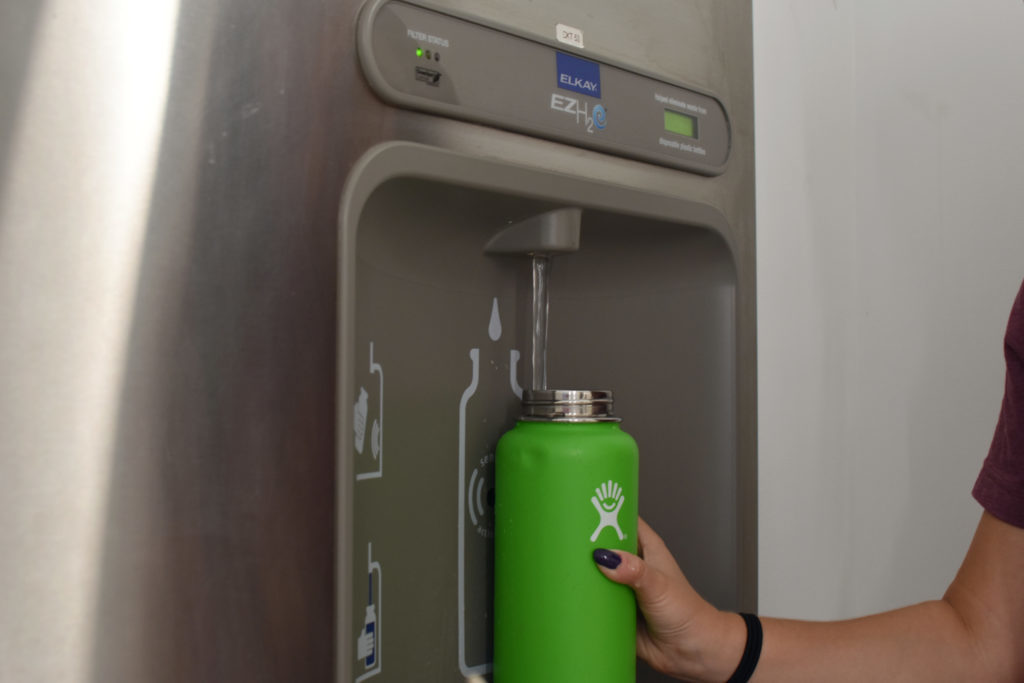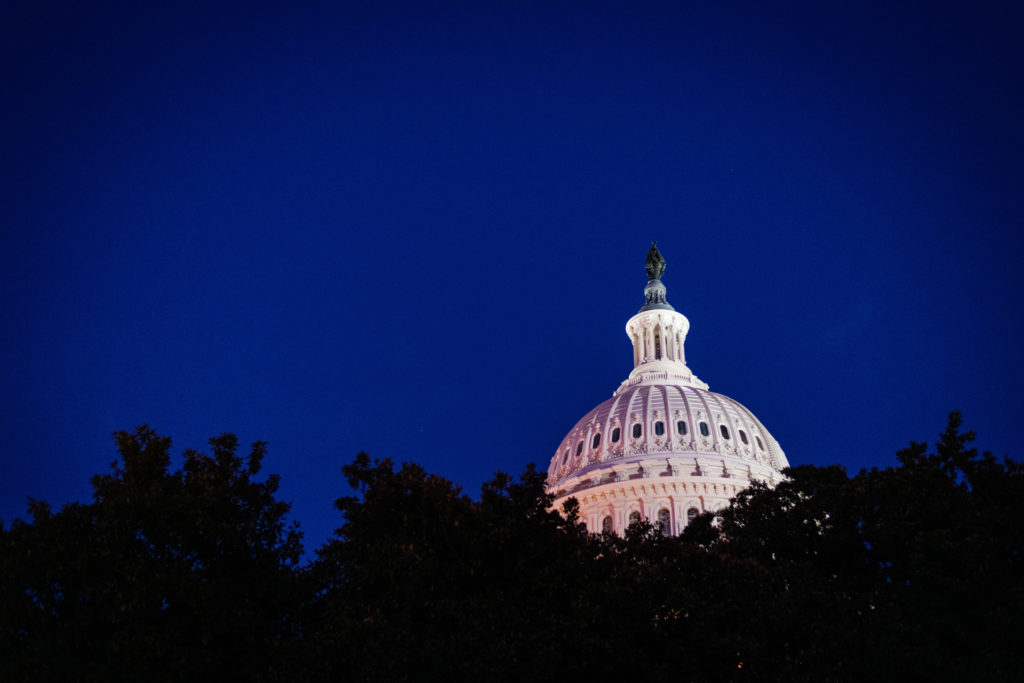Officials said GW is the only university in the District to commit to eliminating single-use plastics on its campus.
University President Thomas LeBlanc said he hopes GW will send a positive message to other D.C.-area schools about the possibilities for environmental change on campus. He said plastics contribute to a large amount of trash on campus streets, and he hopes to provide students with accessible, reusable alternatives to single-use plastics over the next couple of years.
“If you walk around campus, and I do because I live here, regularly I’ve seen an increase of trash in the streets, and it’s remarkable to me how much of it is single-use plastics,” LeBlanc said in an interview last month. “It’s not just the impact on the oceans and the impact on the landfills and all these other things. We can actually see it on our streets, so I think this is a wonderful initiative.”
LeBlanc said he hopes to collaborate with GW’s vendors and encourage them to eliminate disposable plastics. He said while GW will cooperate with its partners, the University will be unwilling to purchase products from vendors that aren’t made from the appropriate materials.
He said he hopes to provide students with reusable dining ware to divert them from using single-use plastic packaging from GWorld vendors.
“If all of our students are given, very early on, reusable dining ware, then they don’t need to take plastics at any of those locations and over time, the demand for those plastic utensils will dissipate as well,” LeBlanc said.
LeBlanc said Take Back the Tap, a student organization that works to educate the GW community on the dangers of plastic pollution, played a role in “sensitizing our whole community” to the issue of single-use plastics and introduced the idea of encouraging students to use reusable water bottles.
The United States produced 292 million tons of plastic waste in 2018, according to the Environmental Protection Agency.
The Class of 2023 received reusable water bottles and a barcode tag tracking the number of plastic water bottles that students were saving at the start of their New Student Orientation in 2019.
“I want to distinguish between the reusable water bottle and then the water that comes in plastic bottles,” LeBlanc said. “We’re not going to buy plastic bottled water for University events. We’re going to have refill stations and make sure the students all have access to a multi-use water bottle.”
Meghan Chapple, the director of the Office of Sustainability, said administrators are planning to implement the University’s plan in four scopes. She said the first scope involves reducing disposable plastics on campus, which the University has direct control over, and the second scope will address single-use plastic use at the University’s vendors.
She said the third scope includes adapting GW community member lifestyles to exclude plastics, and the fourth includes dialogue and engagement in the community about the ban. She added that the scopes will occur simultaneously.
Junior Jennifer Cuyuch, the co-president of Take Back the Tap, said the organization has been pushing officials to implement refill stations on campus and take plastic water bottles out of vending machines since 2018. She said students can take steps, like using a water filter and reusable water bottle, to reduce their plastic waste, but administrators should aid students in accessing the necessary reusable materials.
“It is a bit privileged to just be like, ‘Oh, you know, just get a hydro flask,’ for example,” she said. “A big part of this should come from the administration.”
Cuyuch added that the group is pushing for administrators to commit to a date by which GW will have phased out these plastics and said their plan for eliminating them was “very ambiguous.”
“It was like, ‘We’re going to do this,’ but they don’t necessarily say how they’re going to do it,” she said. “In the event they do actually have very specific actions that they want to take, we want to make sure that’s released to the public because people need to know so that they’re held accountable.”
Experts in sustainability on university campuses said eliminating disposable plastics on campus helps create a more sustainable world and the move should be paired with a committee to hold the University accountable to its goal.
Joseph Gardella, a professor of chemistry at the University of Buffalo, said these plastics are leading to “extraordinary impacts” on the environment and, eliminating them is just one step in the right direction.
“Getting rid of single-use plastics is just a part of the problem of reducing plastic waste, and while that will make people feel good, it’s not enough to really deal with the plastic waste that we have in the environment that is just having extraordinary impacts on freshwater systems, on the marine environment, on animals and even all the way down to single-celled organisms,” he said.
Officials formed the Single-Use Plastics Task Force at the start of the academic year, with Executive Vice President and Chief Financial Officer Mark Diaz as its organizer. The task force convened in September to develop a plan for the implementation of the ban, before submitting recommendations to officials in October.
Ryan Bell, the associate director of sustainability at the University of California Office of the President, said the UC system committed to eliminating disposable plastics in all 10 of its campuses. He said it’s easy to “pass a broad general sweeping policy that is aspirational” but the key to the policy’s success is in its implementation.
“The devil is really in the details,” Bell said. “You need to think through what plastics are being used, what alternatives are available and especially who should be brought into the conversation.”








